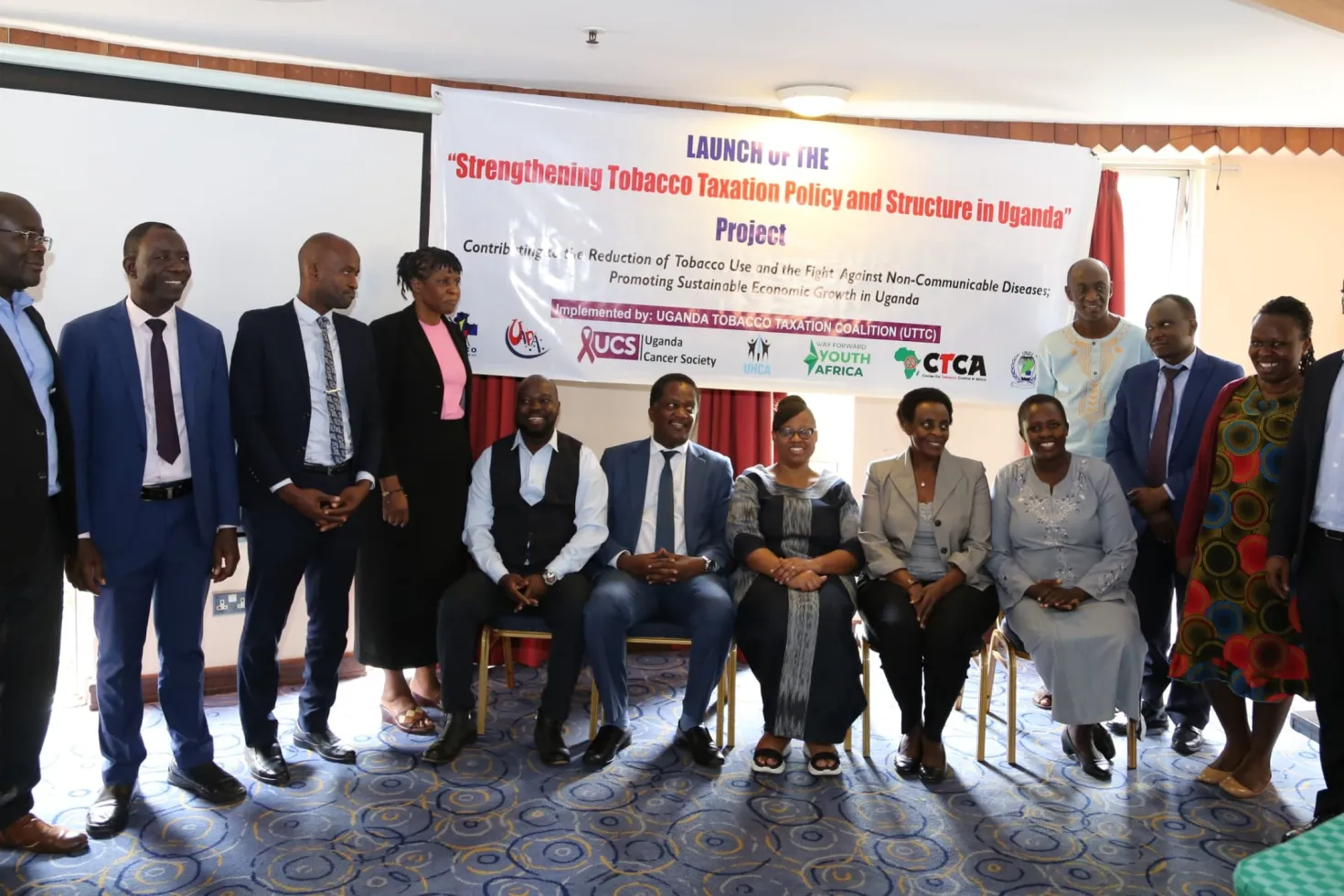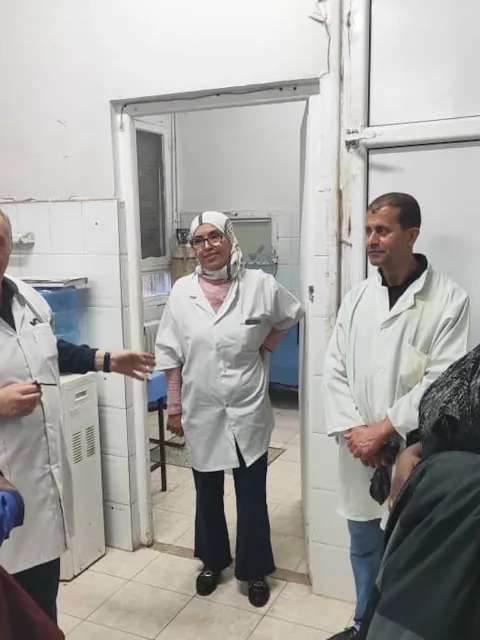The power of tobacco taxation: reducing cigarette consumption and saving lives in East Africa
Advances in prevention, screening and treatment strategies and technologies have led to significant reductions in cancer mortality where available, but there are large gaps to fill to ensure an equitable access to services for all populations.

HIGHLIGHTS
- Tobacco taxation is a highly effective tool to reduce cigarette consumption and prevent cancer-related deaths.
- UICC and CRUK launched a joint programme to support tobacco tax advocacy in East Africa through local coalitions, including with UICC member organisations.
- Uganda and Kenya coalitions are pushing for WHO-compliant tax policies, despite industry resistance and weak enforcement.
- The tobacco industry’s interference is a major barrier to reform, but local advocacy groups aim to counteract this through policy engagement and public awareness efforts.
Tobacco taxation is a WHO ‘best buy’ to reduce the burden of non-communicable diseases. It is one of the most effective tools to reduce cigarette consumption, which is a significant risk factor for cancer, causing nearly a quarter of all deaths due to cancer (2.5 million out of 10 million).
In East Africa, where tobacco use still poses a significant public health challenge, increasing taxes on tobacco products represents a proven strategy to combat this epidemic. The experiences of Uganda and Kenya, as highlighted by their respective cancer societies, demonstrate the profound impact that well-implemented tobacco taxation policies can have on public health.
The mechanism is simple: higher taxes increase the price of tobacco products, making them less affordable, especially to young people and low-income populations who are particularly sensitive to price changes. The result is a significant reduction in cigarette consumption.
Tobacco control at the World Cancer Congress
UICC's World Cancer Congress 2024 is highlighting innovative strategies and campaigns to combat tobacco marketing, with a focus on the WHO Framework Convention on Tobacco Control and tobacco-free policies at international sporting events.
In 2023, UICC and Cancer Research UK (CRUK), a UICC member-partner, launched a joint programme delivered as part of UICC’s Cancer Advocates programme, with a focus on East Africa to support policy change in the area of tobacco taxation. The programme supports organisations to become strong tobacco control advocates, and uniting them to draw on a range of expertise and different health sectors.
In the first months of 2024, two coalitions were built in both countries and official engagement was effective on 31 May, on World No Tobacco Day.
The Uganda Tobacco Taxation Coalition (UTTC) unites seven public-health-focused NGOs to advocate for a tobacco tax policy aligned with the WHO’s Framework Convention on Tobacco Control (FCTC), aiming to reduce tobacco use in Uganda by 2029. The coalition collaborates with key government bodies, including the Uganda Parliament, the Ministry of Health, and the Uganda Revenue Authority.
In Uganda, 8.3% of the population uses tobacco, as of 2023, a number that is higher for youth, with 10.5% of the population aged 13-15 using tobacco (World Health Organisation, 2019). Combined, this results in more than 10,600 deaths each year attributable to tobacco use (American Cancer Society and Vital Strategies, 2021).
A 2017 report by the Centre for Tobacco Control in Africa (CTCA) revealed that the total health cost of tobacco use, including the direct cost of treatment and the indirect costs of loss of income and productivity from death and disability in Uganda, is USD 126.48 million. The total health cost therefore outweighs the market value of tobacco products (USD 81.22 million) by more than 50%.
Nevertheless, the government has not raised tobacco taxes in the last five years, according to the Uganda Tobacco Taxation Coalition (UTTC), highlighting a crucial missed opportunity to reduce tobacco consumption and its associated health burdens. The UTTC states that the tax on the most popular cigarette brand is 39.9% of the retail price, falling short of the WHO's recommended minimum of 70%.
"Uganda has not increased tobacco taxes for the last 6 years. This means that more Ugandans can now buy tobacco products and also attracts young people to start smoking resulting in more deaths. Taxation does not only reduce consumption and deter smoking initiation it also contributes to Uganda’s Domestic Resource Mobilization Strategy.”
– Robinah Kaitiritimba, Secretariat, Uganda Tobacco Taxation Coalition
In Kenya, the situation is similar. Although Kenya ratified the WHO Framework Convention on Tobacco Control (FCTC) in 2004, and incorporated its principles and guidelines in the Tobacco Control Act of 2007, the country has not fully leveraged tobacco taxation as a public health tool.
Late diagnosis and limited prevention efforts, notably with respect to modifiable risk factors such as tobacco, play an important role in Kenya’s cancer burden, which stands at nearly 45,000 new cases and just under 30,000 deaths per year.
Tobacco use kills 12,000 Kenyans yearly and is linked to 1 in 3 cancer deaths. The National Cancer Control Strategy 2023-2027 emphasises tobacco control and taxation as critical tools for cancer prevention.
However, Kenya's tobacco tax structure is below recommended WHO guidelines, with low tax rates and poor enforcement, making tobacco products affordable. Industry interference, new nicotine products, and weak coordination further hinder progress on tobacco control.
The Kenya Tobacco and Nicotine Tax Coalition (TNTC) was formed to advocate for effective tobacco taxation to advance cancer control. It unites eight civil society organisations focused on policy advocacy, cancer prevention, and NCDs, including Consumer Information Network, Kenya Network of Cancer Organisations, and Kenya Tobacco Control Alliance. The coalition leverages its members' expertise to push for effective tobacco tax policy through advocacy, research, and stakeholder engagement.
The coalition aims to strengthen tobacco and nicotine tax reforms by 2026 through building a robust stakeholder coalition, developing FCTC-compliant tax policies, reducing industry interference by 50%, and mobilising community support. Key challenges include industry resistance, misinformation, low public awareness, and fragmented advocacy efforts, but there are opportunities to counter these and improve public health outcomes.
"Our Tobacco and Nicotine Tax Coalition consists of diverse organizations, each bringing unique strengths to the table. By working together, we are confident that this coalition will achieve its goal. We are deeply grateful to UICC and CRUK for their support in safeguarding public health against the formidable challenges posed by the tobacco industry. Together, we move forward with determination."
– Thomas Lindi, Chief Executive Officer, Kenya Tobacco Control Alliance
Countering tobacco industry arguments and interference
Opponents of tobacco taxation often argue that higher taxes lead to job losses and increased illicit trade. Longstanding evidence from around the world, however, proves that these concerns are largely unfounded in the medium to long term. A study in the BMJ states: “Contrary to industry arguments, evidence shows that taxation may have short-term negative financial consequences for low-income households. However, medium and long-term financial benefits from reduced healthcare costs, better health, and welfare largely compensate for such consequences.”
Moreover, the World Bank and other international bodies have shown that the economic benefits of reduced healthcare costs and increased productivity far outweigh the potential job losses in the tobacco sector.
Indeed, the economic argument against tobacco taxation is also undermined by the overwhelming health costs associated with tobacco use. As already shown with respect to Uganda, the direct costs of treatment and the indirect costs of lost income and productivity due to tobacco-related illnesses far exceed the revenue generated by the tobacco industry.
Similarly, in Kenya, the TNTC emphasises that effective tobacco tax policies can actually generate significant public revenue while reducing tobacco consumption. The coalition also points out that fears of increased illicit trade are often exaggerated by the tobacco industry as a means of stalling tax reforms.
By not increasing taxes, both Uganda and Kenya risk perpetuating a cycle of illness and economic burden. The UTTC argues that adopting a FCTC-compliant tax structure would contribute significantly to reducing tobacco use and its associated health impacts by 2029.
One of the major challenges to effective tobacco taxation, however, is the growing interference of the tobacco industry in policy and legislative processes. British American Tobacco (BAT) introduced tobacco growing and manufacturing in Uganda in the 1920s, and the country remains an important part of the East African tobacco industry. In both Uganda and Kenya, the industry has been known to lobby against tax increases, spread misinformation, and even threaten legal action to protect its profits.
The UTTC aims to counter this by mobilising civil society, increasing public awareness, and advocating for greater transparency in the legislative process. In Kenya, the TNTC is focused on developing and implementing a monitoring system to reduce tobacco industry interference by 50% in tobacco and nicotine tax policies, thereby safeguarding public health.
UICC and CRUK are pleased to support partners in Kenya and Uganda to achieve these objectives, working closely with them to strengthen the tobacco control movement, advocate for higher tobacco taxes, and reduce the number of cancer cases and deaths caused by tobacco.
See interview with UTTC on Uganda TV
Last update
Monday 07 October 2024
